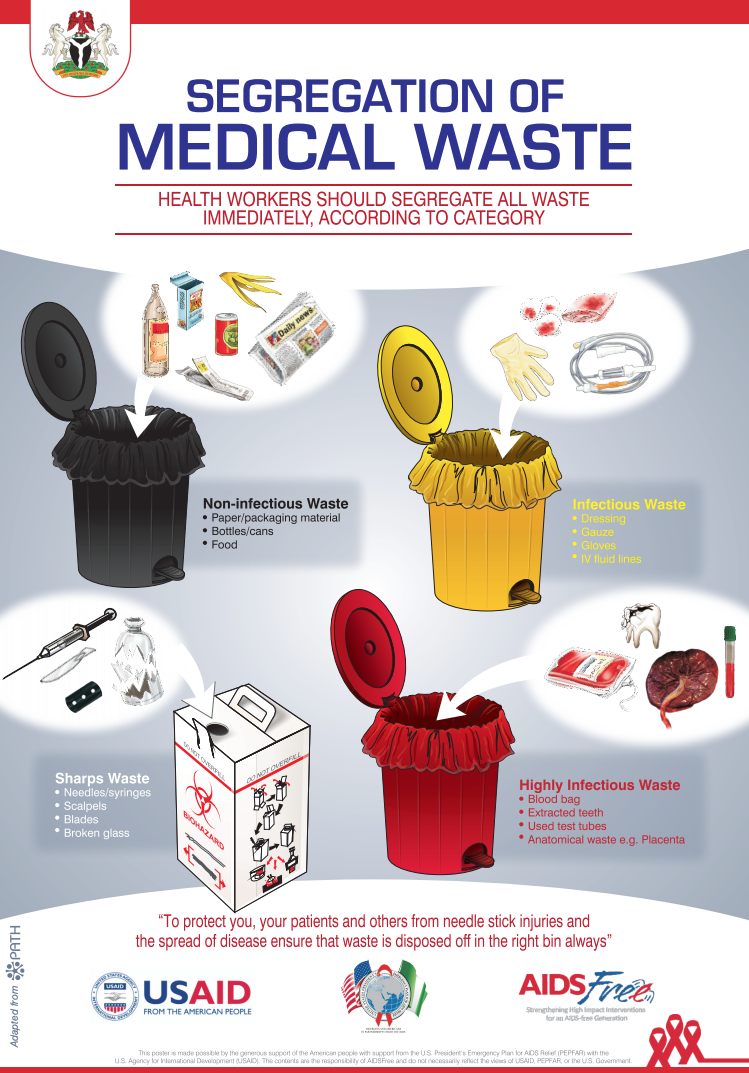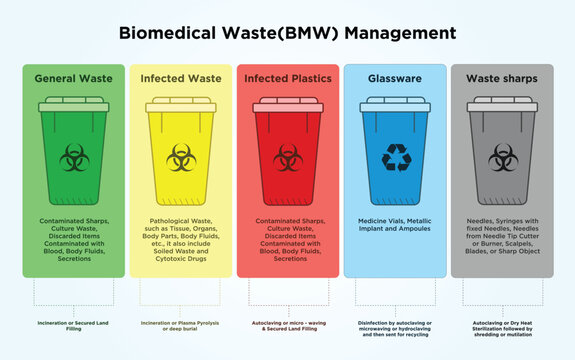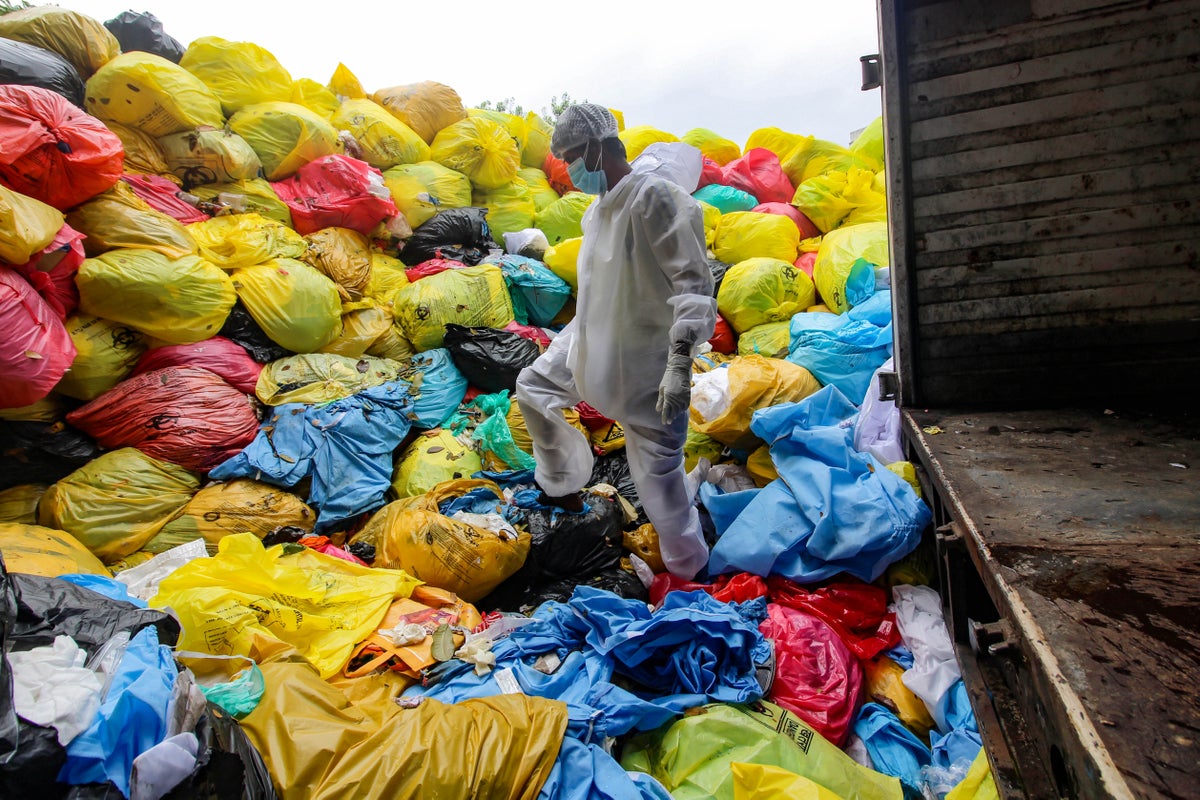Making Certain Safe Handling and Disposal of Medical Waste
Making certain risk-free handling and disposal of clinical waste is of vital importance in healthcare setups. Inappropriate administration of clinical waste can posture significant risks to the atmosphere, public health, and healthcare workers. This requires adherence to stringent guidelines and procedures for its risk-free handling and disposal. In this introduction, we will check out the relevance of appropriate medical waste administration, the dangers connected with incorrect handling and disposal, as well as the guidelines and strategies that can be implemented to guarantee its risk-free disposal. Furthermore, we will talk about the importance of training and education for health care professionals in order to preserve a secure and tidy healthcare atmosphere. By complying with these techniques, we can effectively alleviate the possible threats related to clinical waste.
Value of Correct Medical Waste Administration
Correct medical waste monitoring is of utmost value in guaranteeing the safety and security and well-being of healthcare experts, patients, and the basic public. Medical waste describes any waste generated by medical care centers throughout the medical diagnosis, therapy, or booster shot of humans or pets. This waste can present major wellness risks if not taken care of and thrown away appropriately.
Among the primary factors why correct clinical waste management is important is to prevent the spread of contagious illness. Clinical waste, such as made use of needles, contaminated dressings, and organic materials, can bring hazardous virus. If not handled and taken care of correctly, these pathogens can be transferred to health care employees, people, waste handlers, and even the basic public, resulting in the prospective break out of conditions.
In addition, proper clinical waste management helps safeguard the environment - medical waste disposal service. Clinical waste has hazardous materials, consisting of chemicals, drugs, and contaminated compounds. When not managed properly, these compounds can pollute dirt, water bodies, and the air, presenting a substantial risk to ecological communities and public wellness
In addition, reliable clinical waste administration ensures conformity with global criteria and regional policies. Governments and regulatory bodies have actually developed guidelines and methods to make certain the risk-free handling, storage, transportation, and disposal of clinical waste. Complying with these regulations is important to avoid lawful repercussions and maintain the credibility and integrity of healthcare centers.
Risks of Improper Handling and Disposal

Clients can likewise be subjected to these infectious diseases if medical waste is not properly thrown away. As an example, if infected needles or various other sharps are not disposed of in designated puncture-proof containers, they may mistakenly puncture clients, causing potential infections. If clinical waste is not set apart effectively, there is a danger of cross-contamination between different types of waste, further raising the possibilities of illness transmission.
Improper disposal of medical waste can likewise have harmful effects on the atmosphere and the basic public. If clinical waste is not treated and taken care of appropriately, it can pollute water resources, dirt, and air, bring about the spread of toxins and illness. This can have long-term effects on ecosystems and public wellness.
Guidelines for Safe Handling of Medical Waste
Applying efficient procedures for the risk-free handling of medical waste is crucial in making certain the security of healthcare specialists, individuals, and the public. These guidelines are crucial in decreasing the threats related to the handling and disposal of clinical waste, such as infections, injuries, and environmental air pollution.
Primarily, healthcare centers must develop a comprehensive waste administration strategy that follows regional, nationwide, and global regulations. This strategy should include clear guidelines on waste segregation, product packaging, transport, labeling, and storage space. It is crucial to divide different kinds of waste, such as sharps, contagious materials, drugs, and non-hazardous waste, to avoid cross-contamination and advertise secure disposal.
In addition, health care employees must receive thorough training on appropriate waste handling techniques. They should be enlightened on the prospective dangers of clinical waste, WasteX Medical Waste Disposal the ideal use personal protective devices (PPE), and the proper treatments for handling, moving, and taking care of different types of waste.
In addition, health care centers must routinely keep track of and audit their waste administration methods to make sure conformity with guidelines. This consists of performing regular evaluations, evaluating waste handling procedures, and offering responses and training to personnel.
Reliable Methods for Waste Disposal
To guarantee the risk-free handling and disposal of medical waste, it is important to use efficient techniques for garbage disposal. Clinical waste can position significant threats to public wellness and the atmosphere otherwise dealt with and thrown away effectively. Health care facilities and waste management organizations must apply suitable methods to minimize these risks.
One efficient method for waste disposal is partition. It involves separating different kinds of clinical waste based upon their qualities. Segregation permits the proper therapy and disposal of each waste category, lowering the potential for contamination or harm. Medical care facilities must provide clear guidelines and training to employee on exactly how to segregate waste appropriately.

Additionally, healthcare facilities ought to collaborate with qualified waste monitoring companies to guarantee correct disposal of clinical waste. These firms have the know-how and tools called for to securely get rid of and handle of clinical waste in conformity with policies and ideal methods.
Training and Education And Learning for Medical Care Professionals
Healthcare professionals play a critical function in making certain the secure handling and disposal of clinical waste through comprehensive training and education. It is important for doctor to have a deep understanding of the potential risks related to clinical waste and the correct methods for its administration. By receiving proper training, healthcare specialists can lessen the prospective transmission of infectious conditions, avoid ecological contamination, and shield both themselves and the basic public.

In addition, training programs must emphasize making use of individual safety tools (PPE) and proper hand health techniques when taking care of medical waste. medical waste disposal service. Healthcare experts need to know exactly how to appropriately get rid of and make use of of PPE to protect themselves from potential exposure to unsafe products. They should likewise be informed on the relevance of regular handwashing and the correct use hand sanitizers to lessen the spread of transmittable conditions
Proceeding education and routine updates on clinical waste management practices are critical for health care specialists. As policies and standards develop, it is crucial to keep doctor informed about any kind of changes in procedures and finest techniques. This will certainly ensure that they stay up-to-date and maintain a high criterion of safety and security in managing and getting rid of of medical waste.
Conclusion
In verdict, correct handling and disposal of clinical waste is vital to ensure the security of medical care experts, clients, and the environment. By sticking to these techniques, we can alleviate the prospective dangers linked with medical waste.
Clinical waste refers to any kind of waste created by health care centers throughout the diagnosis, therapy, or immunization of humans or pets. If medical waste is not set apart effectively, there is a danger of cross-contamination in between various types of waste, further boosting the opportunities of illness transmission.
It is important to separate various kinds of waste, such as sharps, contagious products, drugs, and non-hazardous waste, to prevent cross-contamination and promote secure disposal. WasteX Medical Waste Disposal.
To ensure the safe handling and disposal of medical waste, it is essential to utilize reliable techniques for waste disposal. Furthermore, medical care facilities ought to develop a normal waste collection and transportation routine to protect against waste accumulation and decrease the danger of mishaps or contamination.